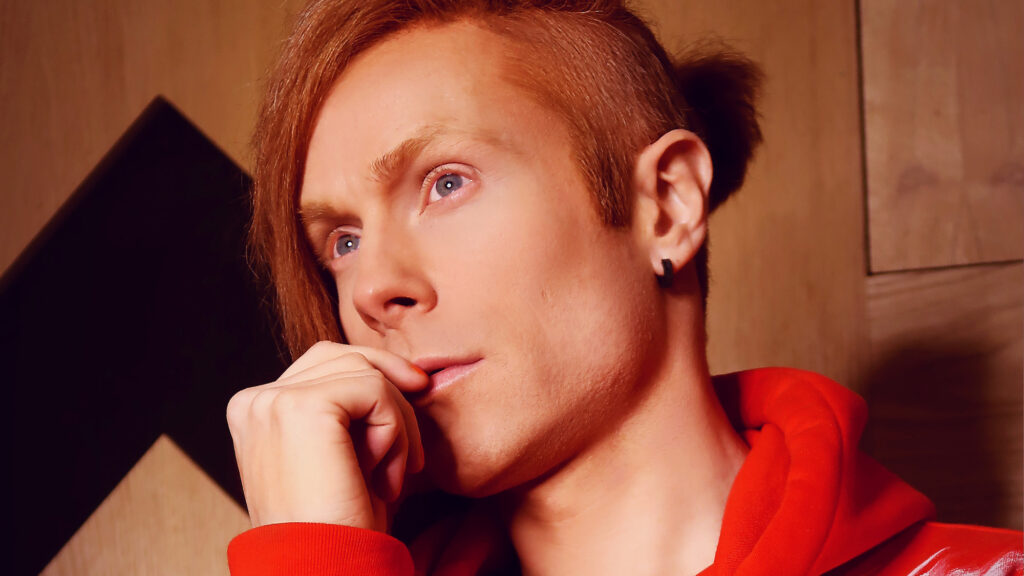
Celebrity Gaymer: Bentley Jones

Bentley Jones is a queer British producer and recording artist who has written songs for games including Tekken, Titan Wars and Sonic, plus he was the first ever British artist to release a Japanese album on a major label.
Bentley has recently celebrated his ten year anniversary of being in the music business and coincided with the release of his Japanese single “Lay Down on My Heart”. The song was premiered in the UK by BBC Radio and was the first ever J-pop song broadcast by BBC Introducing leading to Bentley being awarded the “Sound of 2019” (BBC).
It was so much fun to be able to spend some time with Bentley to discover where his love of music came from and his connection with the world of games.
Bentley, thanks so much for joining me, you’ve been in the music industry for over ten years, what got you started in music?
I was always passionate about music as a kid and got into production as a teenager. I decided to go all out and make it my full-time job when I was 17. Luckily after just a few months I got a production deal as a remix producer and from there I just kept going, eventually moving into song-writing and composing.
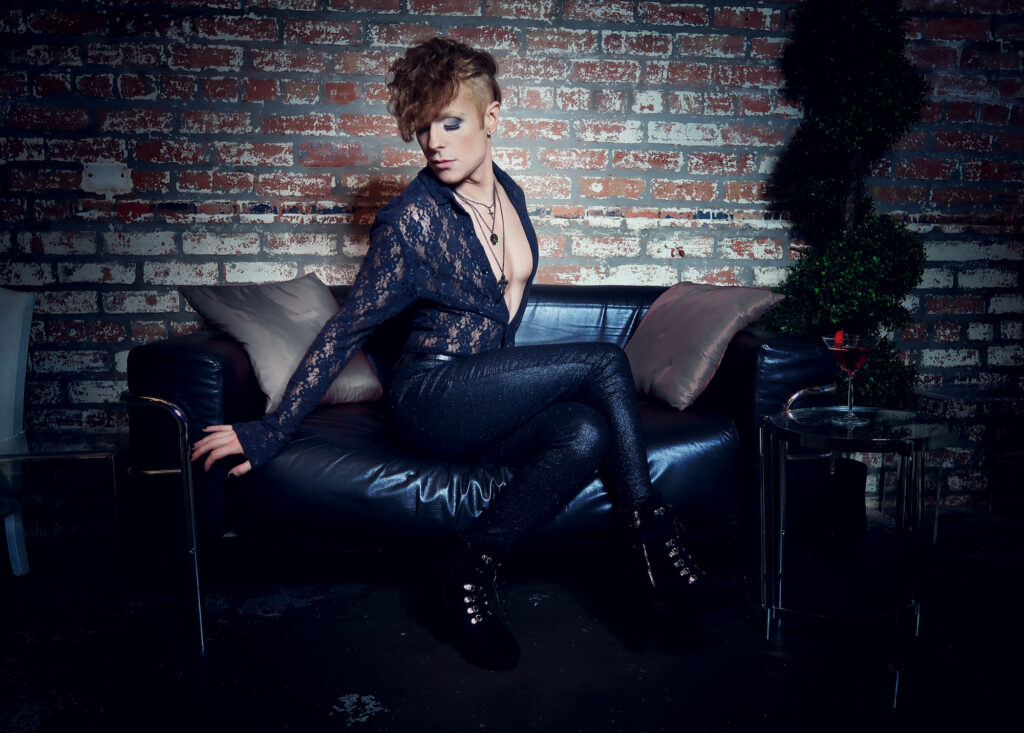
You have composed songs for games like Tekken, Sonic Titan Wars and more, how did this come about?
Honestly I’m not entirely sure! At the time, my latest showreel was being sent about and one of the copies ended up with Sonic Team who contacted me to work on their next game, which was my first video-game project. From there, my journey in the commercial industry has often crossed paths with composers and game studios so it was easy to transition to other franchises and titles.
What has been your favourite video game song you’ve written?
It changes daily! Right now, it’s probably “STUTTA 2.0” from the Superbeat series because it’s so much fun to perform live!
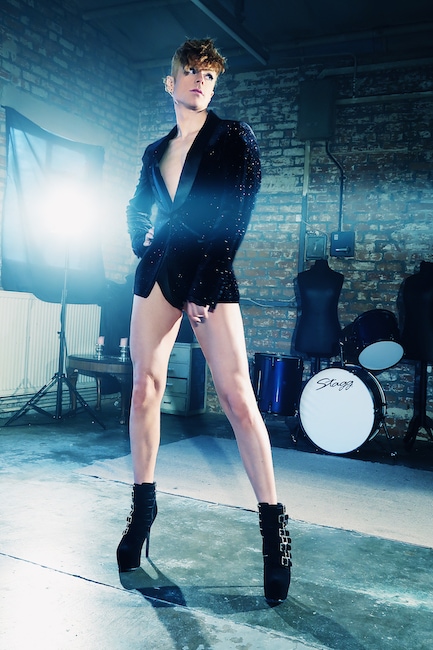
Is there anything different about writing music for video games?
Fundamentally I don’t believe there’s much difference compared to when I’m writing for another artist. In both cases you’re working to a brief – sometimes it’s very specific and other times there’s lots of creative freedom. My job is to help the other party fully realise their vision – it’s totally their journey and I’m there to help them reach their destination.
Music in games is having a renaissance at the moment with a growing list of music-inspired games, like Sayonara Wild Hearts, are you excited about how games are embracing music more?
Anything that re-establishes the value of music makes my heart sing! The commercial industry is a mess where the value of music has been reduced to zero. This was emphasised during the pandemic this year when we saw many global governments reluctant to support their native music industry – in a time when EVERYONE was at home consuming more music than ever and touring artists were out of work! Creatives should support each other since we all work in turbulent and challenging circumstances. To see the gaming industry continue to nurture the music industry in this way is inspiring.
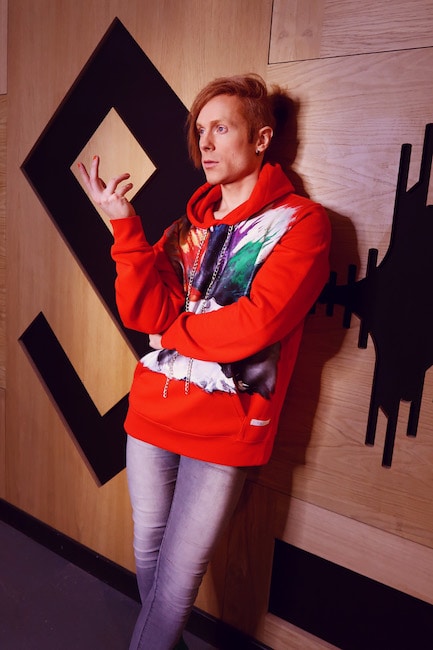
What game series would you like to write music for?
Something where I could create work that’s beautiful and epic with a wide scope to venture into new styles – maybe something for Square Enix like Kingdom Hearts or Final Fantasy. Having gotten so close to Devil May Cry doing a co-write for Capcom, that wasn’t used in any of the games, I’d love to do something for one of the actual game soundtracks too!
You’re well known for being the first ever British artist to release a Japanese album on a major label, what inspired you to do this?
I like to make life difficult for myself! I guess the seed was planted when I discovered Ayumi Hamasaki on YouTube by accident. She was my gateway into J-pop. A couple of years later when I was free to do so, I just started having discussions with labels in Japan to see if they’d be interested in doing anything with me. EMI-Universal, EMI Music Japan at the time, saw what I was capable of and signed me for an album deal. They even went as far as to hook me up with Ayu for a co-write on one of my tracks.

What is it about your music that has made you a hit in Japan?
I’ve always had a strong pop sensibility quite simply because I love pop music. Immersing myself in J-pop – listening to all my favourite artists before I released my debut – was unintentionally a study-course in learning all the cultural tropes that make J-pop unique.
However, being equally appreciative of Western music, I now have a natural tendency to write using compositional elements of both. So to my Japanese listeners, my songs have edge because they sound very “Western” but there’s also enough J-pop to make them accessible and relatable.
Asian pop music is relatively new to the UK in terms of radio plays and mainstream coverage, why do you think the likes of J-pop and K-pop didn’t make it here sooner?
Both genres are still niche markets and so with the UK industry, if your music isn’t pulling in the big numbers to make a profit then they’re not willing to give it that kind of coverage. More specifically, Korea has always seemed to embrace and actively pursued promoting their music outputs to the West compared to J-pop. With this in mind, they were very quick to start using European and American producers to appeal to Western audiences – which is how we’ve ended up with the K-pop we know today.
There have been several factors contributing to Japan’s protectiveness over J-pop. The cultural differences play a huge role. But also, for a long time now, Japan has been one of the largest music markets in the world – they haven’t NEEDED to export J-pop to the West. Foreign promotion of native brands is incredibly expensive and companies can’t justify it when the industry at large is right on their doorstep.
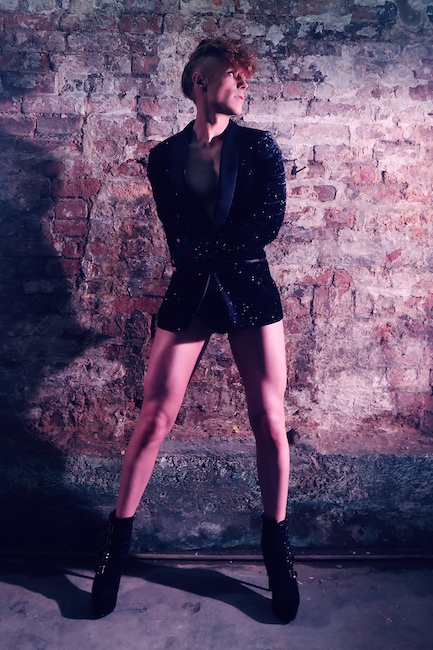
Your latest album is a celebration of queer culture and also touches on some of the discrimination you have faced in the industry, tell me more about some of this discrimination.
Many labels still don’t know “what to do” with LGBTQ+ artists. Since we are a minority in society, they assume that our target audiences are a minority as well. So they attempt to change queer artists – water them down at times – to make them more sellable to the masses. Having been signed to a handful of labels and companies, I’ve experienced the entire gauntlet! They’ve tried to hide/avoid acknowledging my sexuality, they’ve said I need to be more masc to get the female demographic, and they’ve tried to influence my lyrical content… which is always a hard “no” from me.
A lot of this discrimination has come from my career in Japan, which seems to surprise people. Not just my sexuality, but also my race too. I’ve had to do several co-writes under a Japanese pseudonym because there are still lots of Japanese companies that will turn down a song if they see a Western name in the credits.
What more can the music industry be doing to support its LGBTQ artists?
I feel there’s a boom of queer music artists right now, and it’s largely because many of us are doing it ourselves, on our own terms and defining our work without the industry’s constraints. If the industry wants to be a part of this, then it needs to find a way to contribute to the movement and elevate our voices. Otherwise the industry just needs to stay the f**k out of our way.
What was your earliest memory of video games as a child?
Going down the block to visit my best friend and playing the original Sonic the Hedgehog on his Mega-Drive/Genesis. I didn’t have a console at the time so this was my first ever experience of video-games.
What was the one game that defined your childhood?
That would be Sonic again! When my brother got a Mega-Drive he had Sonic 2 and we’d play it for hours – both together and separately. His favourite games were the sports and shooters, but mine was definitely Sonic.
What games do you enjoy playing now?
I still have a taste for speed, so I love racing games! I still love platformers too, but these days I also like fighters, shooters, and anything with an adventure element. Gaming is my escape, so I don’t like to think too hard. Strategy type games aren’t for me.
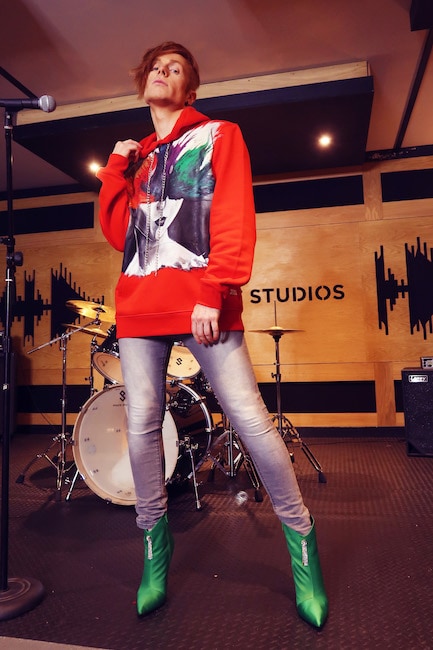
What are you currently playing?
I’m always working so I get really behind with my games! I just completed Devil May Cry 5 and right now I’m loving The Crew 2 – it’s been a while since I’ve found a racer that I’ve really loved.
What does the future hold for you?
I’m appearing at two more Prides this month – one in the UK and one in Sweden. There’s a wild string of singles in line for the run-up to the album, which might not be out until next year. One of them is the theme song for 9monsters which is the number 1 gay dating app in Asia. And I’ve got my first US concerts lined up for 2021, which we’re talking about incorporating into a tour.
That sounds like a full schedule already! How can our readers keep up with you?
Official Site – www.bentleyjones.com
Merch – teespring.com/stores/bentley-jones-official-merch
YouTube – youtube.com/bentleyjonesmusic
Spotify – open.spotify.com/artist/09s85YrKl0VJYri5Nkd7Ls
Twitter – twitter.com/bentley_jones
Instagram – instagram.com/bentleyjonesofficial






